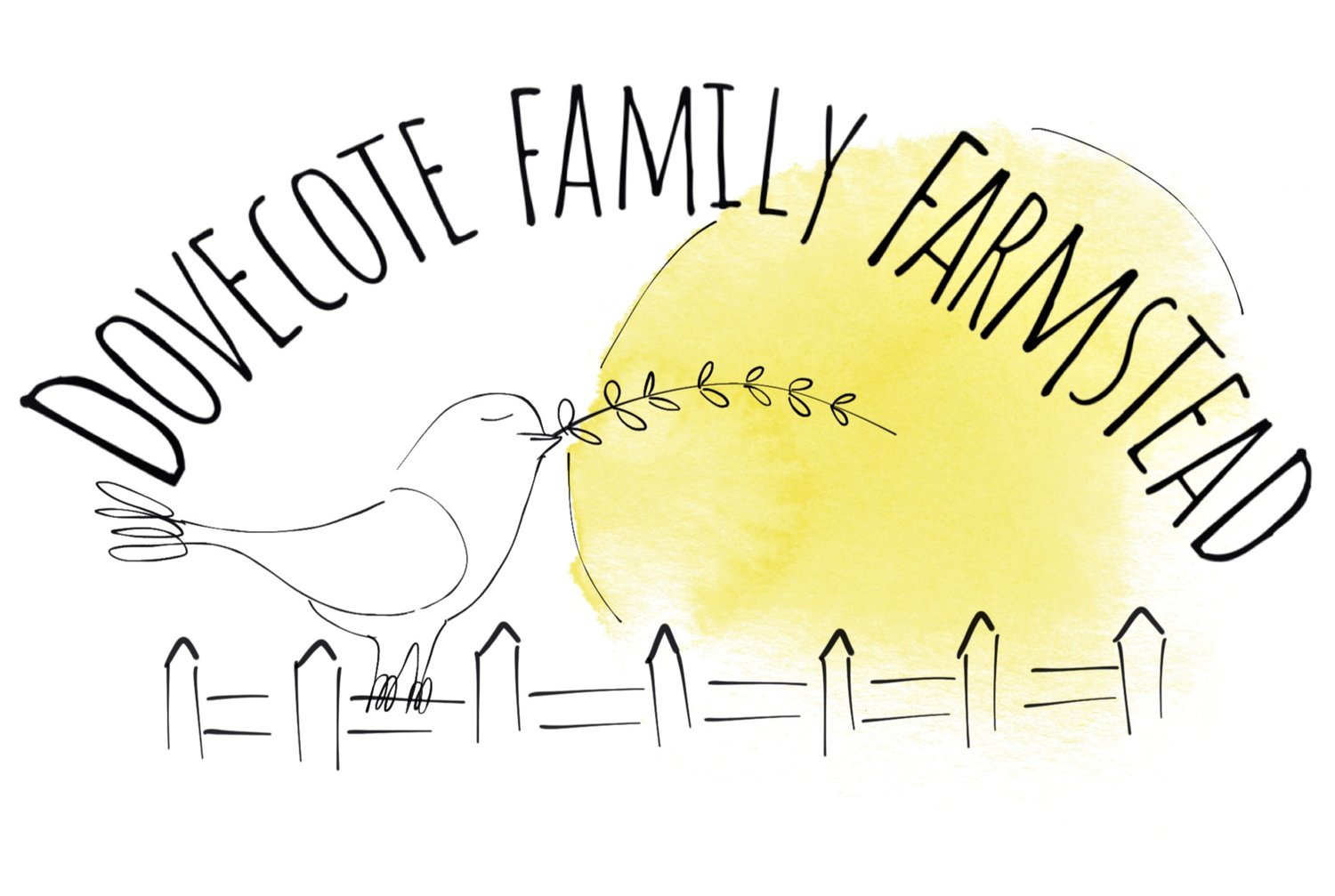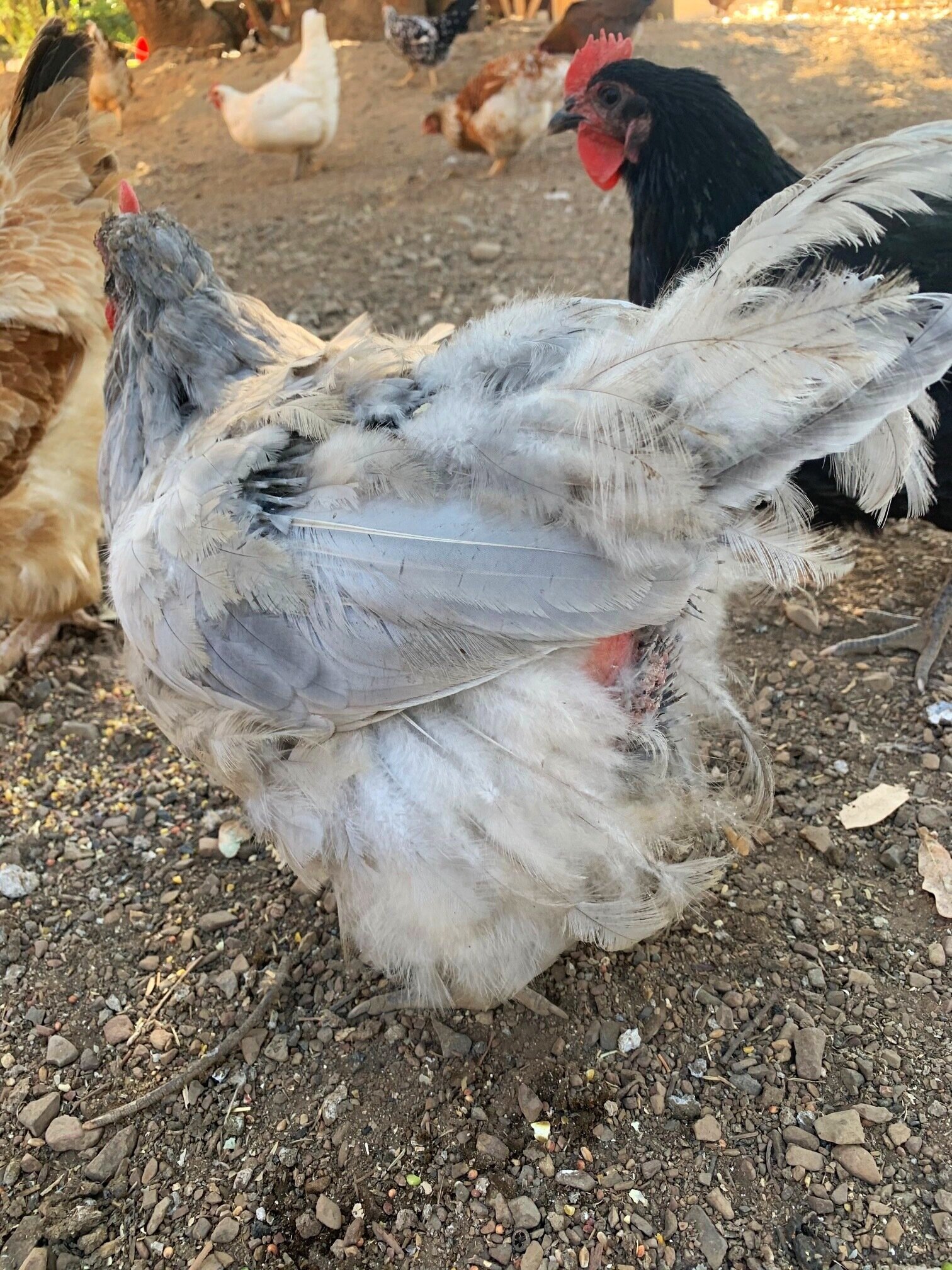Molting…why your chickens have bald patches.
This is an example of a soft molt. Poor girl looks a little rough…
If you're a seasoned chicken keeper, this isn't going to be news to you. But, if you are newer to it and haven't had chickens for much longer than a year, then this will be some good information for you.
Most people get their chickens in the Spring and raise them up through the Summer, usually having eggs before the Fall. The first year of your chicken's life is all about healthy growth and development, and of course for eggs! Then your daily chicken routine seems to fall in to a rhythm and flows accordingly. It's a beautiful thing. Once your chickens have reached their second Fall however, there's another addition to that flow. Molting Season.
(Bonnie is having a rougher go. I think she was a little miffed about having her picture taken in her current condition, I had to bribe her with mealworms for her to stay still for this picture!)
What does it mean when your chicken is molting? In simple terms, your chicken loses some, or most of their feathers and grows fresh, new ones. How many they lose can very from chicken to chicken and some may only lose a few around their neck, vent or back (a soft molt) or they may be darn near bald (a hard molt). Either way, it's completely normal and will become an annual thing from then on. It can look a little crazy in the yard with feathers all over, but shouldn’t last more than 2-6 weeks, depending on how hard their molt is. Also, if you have roosters, they typically never molt as severely as a hen will. I’m not sure why exactly, but they don’t. (the boys always get off easy, don’t they??)
These are great options to supplement and support your flock during their molt.
During the time your chickens are molting, it's important to supplement their diet with additional protein. You can do so by adding mealworms, supplement with scratch, or by buying a feed with a higher protein ratio just while they are molting. (You don’t want to keep them on a high protein feed when they are not molting because it's not good for their kidney's). I also like to grow wheatgrass or oat grass fodder for my birds along with adding mealworms. They seem to think it's pretty great, so I roll with it! (If you want to know how to grow fodder, keep an eye out for my post on it.) I also add kelp meal to their food during molting season and during any other time my birds seem to be under additional stress. I add about 2 cups of kelp meal per 40lb bag of feed.
Another thing to note during molting season is that your ladies will likely stop laying eggs during this time. It takes a lot of protein to grow feathers, so the chickens’ body will slow or stop egg production altogether in order to concentrate on regrowth. Once their feathers are regrown, egg production will resume until it slows again during the winter months.
This is from our rooster, not from molting.
Another little side note. There are other reasons your chicken could be losing feathers. Sometimes they will get a bald patch on their back from the rooster, depending on how attentive he is. Some guys are just rough on those poor ladies. Other reasons could be from the hen herself, plucking feathers out that were either damaged or dirty etc. They can also lose feathers from parasite issues that have become severe. These are much less common though if you’re taking adequate care of your birds. A quick, clear indicator if it's molting and not something else, is that molting nearly always happens in the Fall and will affect multiple birds from your flock to one degree or another.
Well, I hope you feel a little more informed of what's happening to your flock, or will be ready for when it does.
P.S. If you're wondering what to do with all those feathers in your yard and you've got a compost pile, throw them in there. It may take a while to break down, but they are completely compostable.




